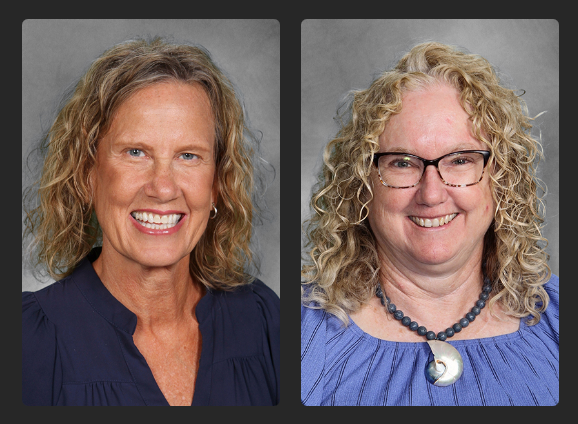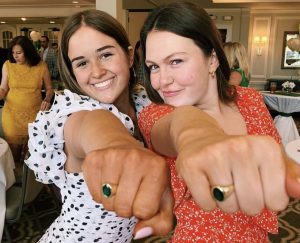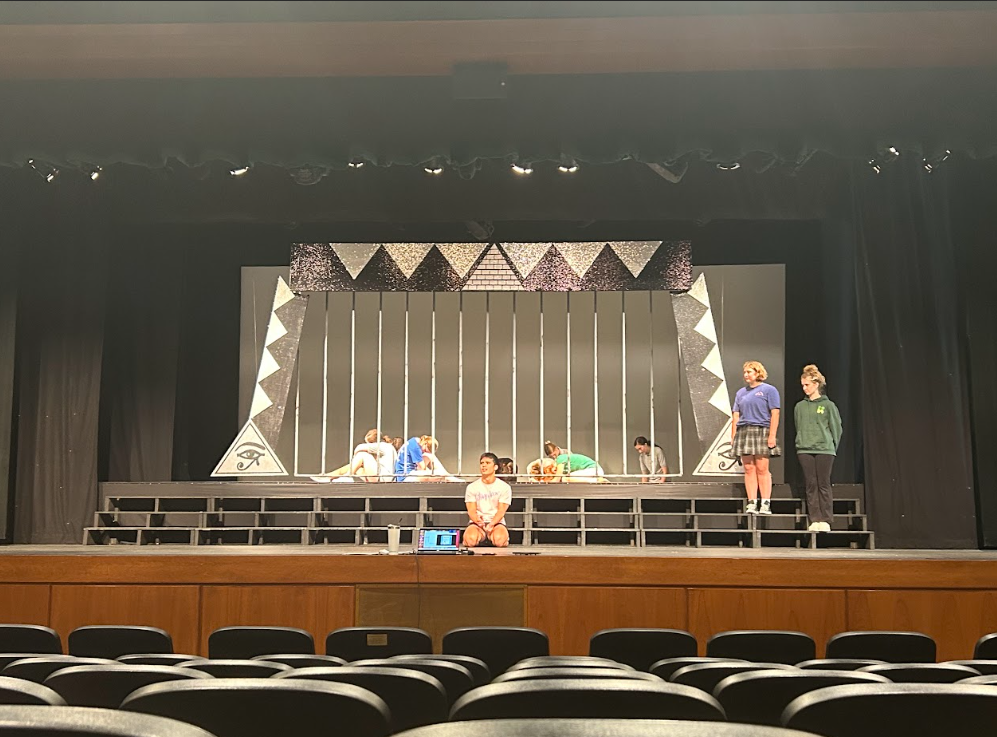The Knees of St. Joe

Ms. Karen Davis (left) and Mrs. Katie Lodes (right).
March 13, 2023
This spring semester, there has been a peculiar trend of knee surgeries St. Joe among faculty at St. Joe. This includes Ms. Karen Davis, Principal of Student Affairs, and Mrs. Katie Lodes, science teacher.
Ms. Davis began her leave of absence in late January, and Mrs. Lodes began hers in early February. Both fortunately had months to prepare for their absences. Filling in for Ms. Davis was Ms. Anna Hotop, Director of Campus Ministry and who will o be taking on Ms. Davis’ role after her retirement at the end of the year. For Mrs. Lodes’ biology, genetics and zoology classes, long-term substitute Ms. Maggie O’Brien has taken the reins.
As coincidental as they may seem, statistics show that these coinciding cases of necessary knee surgeries among females is not uncommon. Data from the Centers for Disease Control and Prevention’s National Center for Health Statistics (NCHS), the rate of knee replacement between 2000-2010 was 50 percent for women when compared to men. This is due to differences in the elasticity of tendons and hip width, ending with stress being placed the most frequently on women’s knees, whereas men are more likely to be in need of hip replacements.
Additionally, athletic involvement can also be an unfortunate contributor to the wear and tear of knees. Ms. Davis played several sports throughout high school and then ultimately college volleyball. Mrs. Lodes was a big-time runner in her youth, participating in varsity cross country and track in high school and competed Division 1 at Mizzou.
Despite this, thankfully today’s knee replacement surgeries dramatically reduce arthritic pain and can be a game changer for those who struggle with mobility issues. Studies from Mayo Clinic and other public health resources have found that most, up to 95 percent of patients, enjoy almost immediate relief from the joint pain they experienced prior to surgery.
According to Ms. Davis, her procedure was successful and her post-op recovery has gone just as planned.
“I’ve had a lot of wear and tear on my knees over the years, but my operation truly went well and my rehab is also going well. I have had very minimal pain from the beginning,” Ms. Davis said.
Mrs. Lodes’ operation also went well, however she has enjoyed a sense of ‘ignorance is bliss’ amidst her recovery. Despite being a biology teacher, Mrs. Lodes did not care to learn about the details of what her procedure would entail. She instead chose to prioritize her comfort and just to simply go with the flow and take each day one step at a time.
“My recovery is going well, and I’m happy to say that I’ve only had a little pain and am already walking much better than before,” Mrs. Lodes said.
The proactiveness of both ladies and their prioritization of their long-term health and mobility lead the SJA community by example. We live in a time controlled by busyness; when we don’t arrange our own schedules but we instead work around them. More of us need to take greater consideration into our own well-being without fear of “inconveniencing” others by making changes to our availability.
Ms. Davis herself can sympathize with procrastinating taking care of managing her knee pain.
“I had been putting it off [knee surgery] for about five years until I finally could not tolerate the pain, swelling and grinding any longer. I am so glad I finally had the surgery, but I cannot wait to be back on campus,” she said.
So let it be a lesson to us all that taking care of oneself health is not selfish. It is high time that individuals who go through processes like these receive more respect for their time and dedication to bettering their own health, as these choices are also commonly made so that they can give more of themselves to the people and communities which they are loved by.













